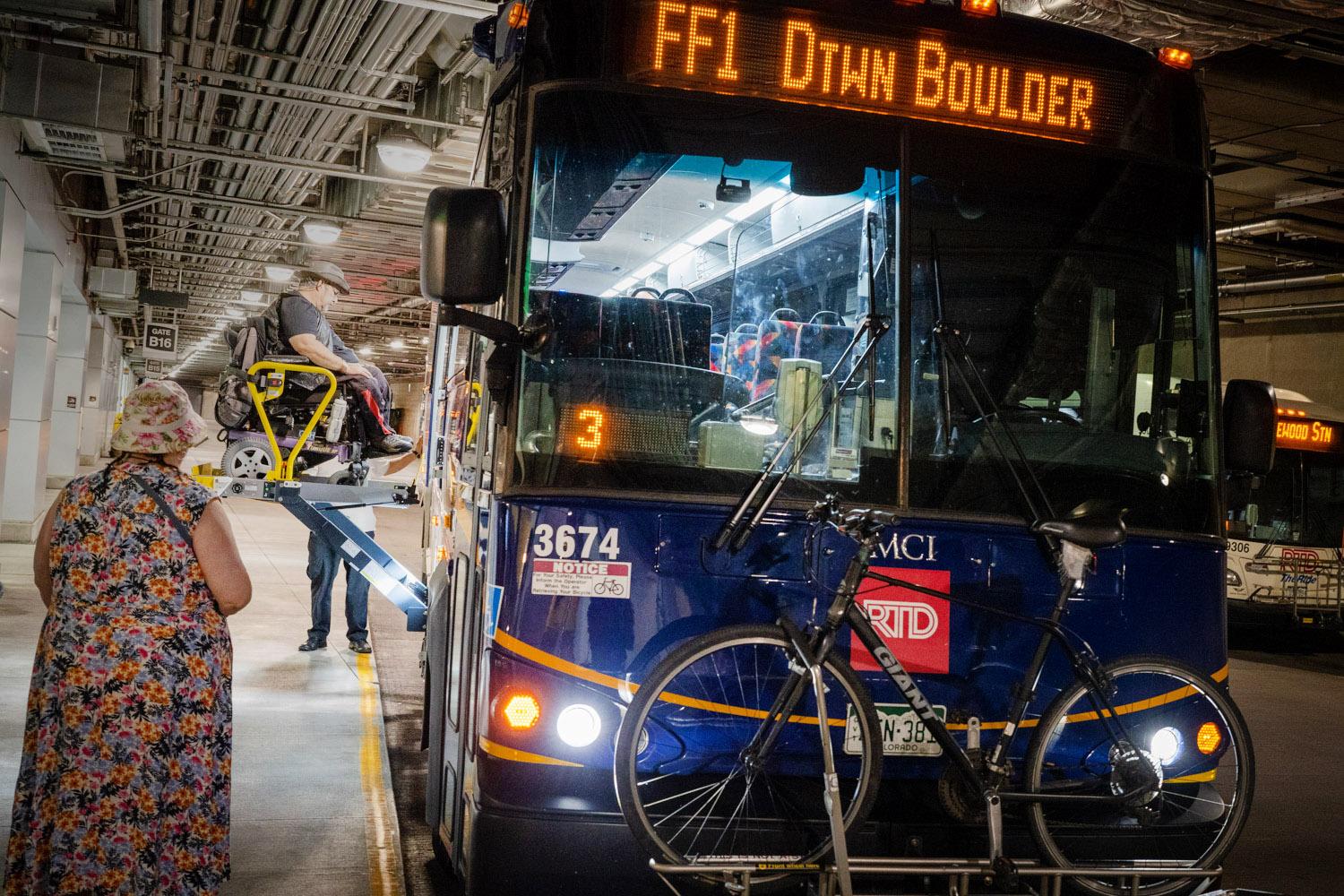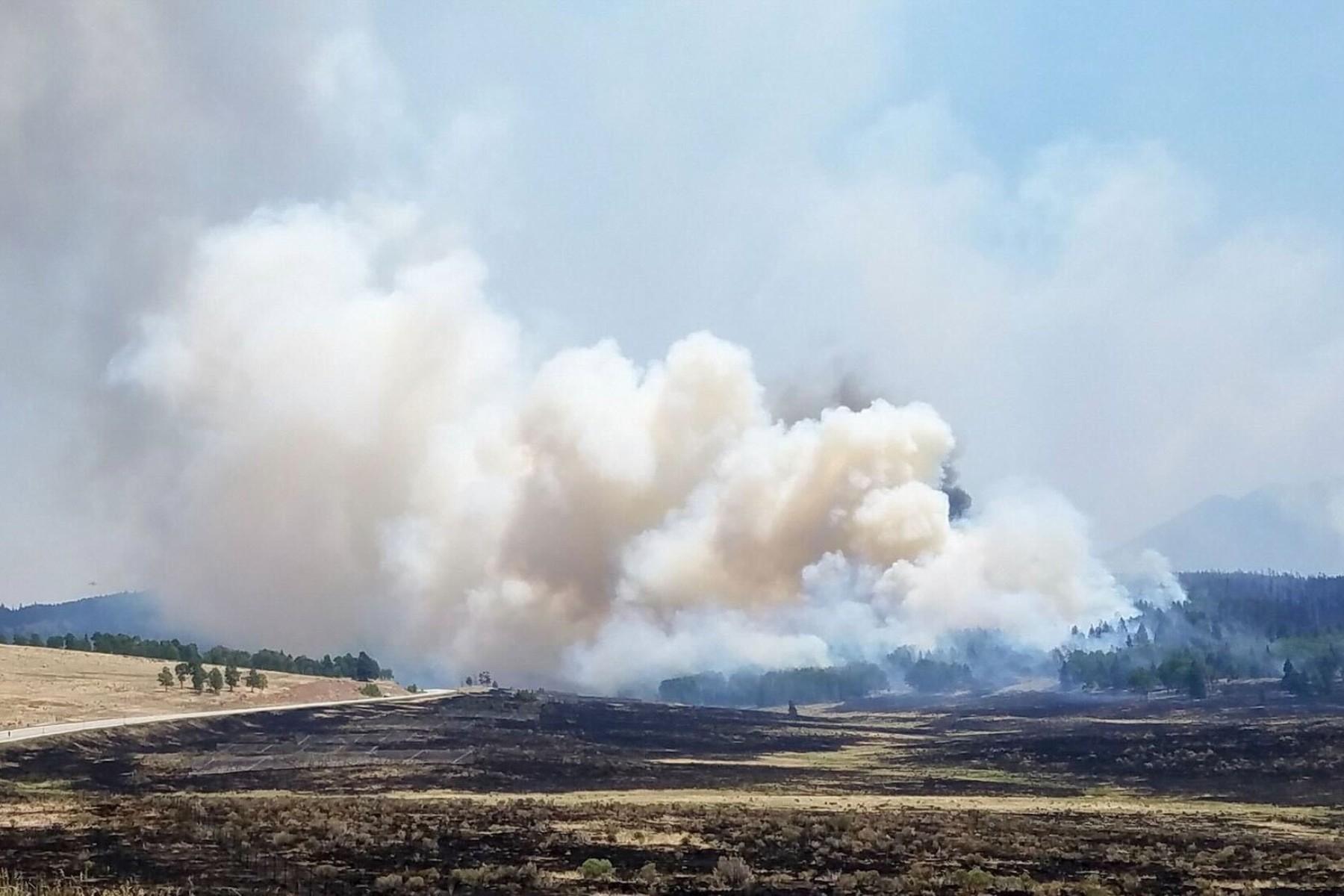
District O represents the most northwestern portion of the RTD area including the city of Boulder, Jamestown, Louisville, Lyons, Nederland, and Ward.
Lynn Guissinger has represented the district since 2019. Richard O'Keefe is running against her in the district.
Lynn Guissinger (incumbent)
What's your elevator pitch for why voters should choose you?
I am the only candidate with years of experience with transportation and environmental issues in RTD's region and in my district in Boulder County. I currently serve as First Vice-Chair of the board. I work closely with local, regional and state stakeholders, and with RTD staff, to achieve the best possible outcomes for the region and my constituents. See Lynn4RTD.com for more information.
What is the biggest problem facing RTD right now, and what would you do to fix it?
RTD continues to have problems hiring and retaining workers, which limits the ability to provide service. The board recently adopted a collective bargaining agreement that raised wages and provided a generous retirement plan. I would like to see RTD increase use of part-time and retired employees, ramp up data collection to see why people leave and continue to expand recruiting efforts.
As it emerges from the pandemic, RTD has prioritized transit service aimed at low-income and minority communities. Some once-popular routes that served wealthy areas remain suspended. Do you agree with this approach?
Yes
Explain your reasoning.
The focus on low-income and minority communities is very important. RTD next needs to move toward a strong regional network of service to bring back commuters. RTD is preparing a new partnership policy to help deliver more local service. This plan needs to focus on encouraging partnerships and giving a stronger voice to local communities.
What should RTD do to make passengers feel safer?
RTD has increased enforcement and has been an early leader in hiring social workers as responders to help assure safety for people riding the vehicles. Environmental design changes may help limit non-riders essentially living in Union Station. I believe we need to increase the security presence, especially on light rail, and increase training of operators to handle difficult situations.
Do you use public transit in your life now?
Yes
If yes, how often? What do you use it for? If not, why not?
I use RTD to go to Denver, to the airport and other regional rides. I ride the SKIP, and I try to stay familiar with other buses locally in Boulder. I am a transit advocate and a bicycle advocate; I also love to commute around Boulder by bike.
Should RTD encourage cities to build more dense development that could yield higher ridership?
Yes
Explain your reasoning.
RTD has enacted an equitable transit-oriented development (TOD) policy that is already encouraging affordable housing near transit. This is a two-way street. When cities bring TOD projects to RTD, RTD needs to prioritize service. Boulder Junction is an example of a successful TOD that has taxed its residents for EcoPasses. RTD needs to prioritize returning service to such developments.
RTD's short-term financial picture has stabilized, but there are no plans to expand service in the foreseeable future. Should RTD ask voters for a tax increase to enable that?
No
Explain your reasoning.
The critical problem with expanding service is workforce, not finances. We need to solve that issue, then RTD will need additIonal funding. The strongest approach may be to diversify RTD's funding sources, similar to the transportation funding in SB21-260. The state should support RTD in this effort (see below). A tax could possibly be part of this, if polling were to show good support.
Should state government contribute more funding to RTD in order to expand service?
Yes
Explain your reasoning.
Public transit is critical to achieving the region's and state's environmental goals. I helped achieve the legislation for the "Zero Fare for Better Air" initiative in August, and would like to work with the state to continue funding efforts. Ultimately, to achieve its goals, the state needs to support public transit in a bigger way.
Should RTD continue to save money toward the Boulder-Longmont train, and other unfinished FasTracks projects?
Yes
Explain your reasoning.
The Boulder-Longmont train was promised in FasTracks. FasTracks would not have passed without Boulder County's support. Unfortunately, RTD does not have the money needed to build and operate any unfinished lines. If Front Range Passenger Rail is funded, models indicate the best route is the NW alignment. This is the scenario in which RTD might be able to provide service in the corridor.
Should RTD reduce or eliminate its fares?
Yes
Explain your reasoning.
Based on feedback that fares are expensive and complex, RTD is conducting a fare and equity study. I would like to see fares lowered. The Zero Fare August program may help show the effects of free fares. The issue is complex; free fares would mean less funding to expand service. Public transit is public; if we value significantly lower fares, we may need to find other funding sources.
Should RTD do more to better meet the needs of the disability community?
Yes
Explain your reasoning.
RTD is launching a program with Uber, based on a very successful pilot, which brings down the cost of Access-A-Ride (AAR) for both the customer and RTD. The customer pays the first $2, then RTD pays up to $20. We hope to expand that program soon. New AAR software is also in the works, and should make AAR more effective and efficient and result in more on-time service and more trips provided.
Richard O’Keefe
What's your elevator pitch for why voters should choose you?
I've managed and turned-around billion dollar organizations with financial challenges while increasing employee satisfaction.
What is the biggest problem facing RTD right now, and what would you do to fix it?
While some of the short-term financial challenges have lessened, the system is still facing the effects of the Great Recession and Covid shutdowns. The RTD needs to work to stabilize its finances, given my experience, I would be ideally suited to help.
As it emerges from the pandemic, RTD has prioritized transit service aimed at low-income and minority communities. Some once-popular routes that served wealthy areas remain suspended. Do you agree with this approach?
Yes
Explain your reasoning.
While I would agree with the approach of putting the RTD's resources where there is the greatest need and where they can do the most good, I think we need to work to towards a plan to restore pre-pandemic services. Once the system and services are stabilized and restored, I would then work on a system to expand services and service frequency.
What should RTD do to make passengers feel safer?
I would work with the leaders of other large mass transit systems around the world to introduce 'best practices' for safety to the RTD. Other systems are facing the same issues and we should be trying to learn from them.
Do you use public transit in your life now?
Yes
If yes, how often? What do you use it for? If not, why not?
Growing up in New York City, my immigrant mother didn't drive so I started using buses and subways at an early age. As an adult, I have lived in Edinburgh, London, Hong Kong, Singapore, Sydney and Chicago without a car so I was heavily reliant on public transportation. I use public transportation whenever I can. This includes trips from my home in Boulder to Downtown Denver and to DIA.
Should RTD encourage cities to build more dense development that could yield higher ridership?
Yes
Explain your reasoning.
I think the RTD should do everything in its power to increase ridership and this includes prioritizing services to more densely populated areas. Public Transportation increases the attractiveness of developments (housing, offices, nightlife) and adds an 'option' that people value.
RTD's short-term financial picture has stabilized, but there are no plans to expand service in the foreseeable future. Should RTD ask voters for a tax increase to enable that?
No
Explain your reasoning.
I'd explore the use of Public-Private Partnerships to create more rapid transit corridors, improve existing routes and increase frequency and dependability (as other cities have done), before raising taxes and increasing the financial burden on families during a time of high inflation. I would lobby large businesses in the region to contribute funds to the RTD programs to help the poor and elderly
Should state government contribute more funding to RTD in order to expand service?
Yes
Explain your reasoning.
If funds are available from the state and federal governments, without raising taxes, the RTD should look for more funding. The system provides value and makes the RTD service area an attractive place to live and work, the state should be helping to keep the system viable.
Should RTD continue to save money toward the Boulder-Longmont train, and other unfinished FasTracks projects?
Yes
Explain your reasoning.
The Northwest Rail project was approved by voters in 2004, taxes started being collected in 2005, the estimated project cost has more than tripled and the completion date has moved from 2015 to the 2040s, with a more realistic date being 2050+. This is unacceptable! No further taxes should be collected unless they are first approved by voters and voters need input into how/if we move forward.
Should RTD reduce or eliminate its fares?
Yes
Explain your reasoning.
As an example, I am an avid user of the AB1 bus from Downtown Boulder to DIA however, for a family of 4, the costs of the bus can be prohibitive. I would propose lowering fares throughout the RTD system to increase ridership by offering reduced 'family pricing' and free passes for the poor and elderly.
Should RTD do more to better meet the needs of the disability community?
Yes
Explain your reasoning.
Yes, as a community we must learn from other public transportation systems so we can more adequately serve the disabled, poor and elderly. This should be a top priority for the RTD Board of Directors.









